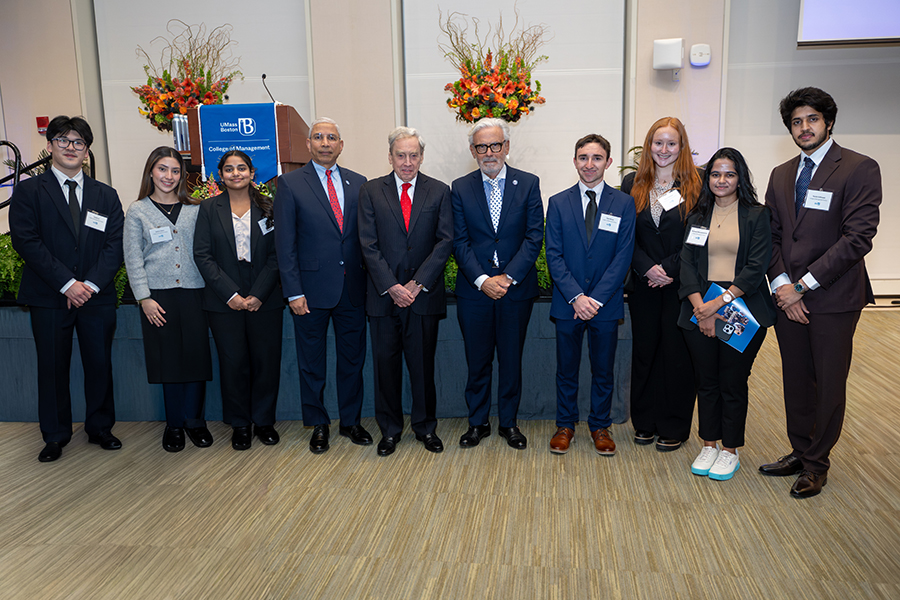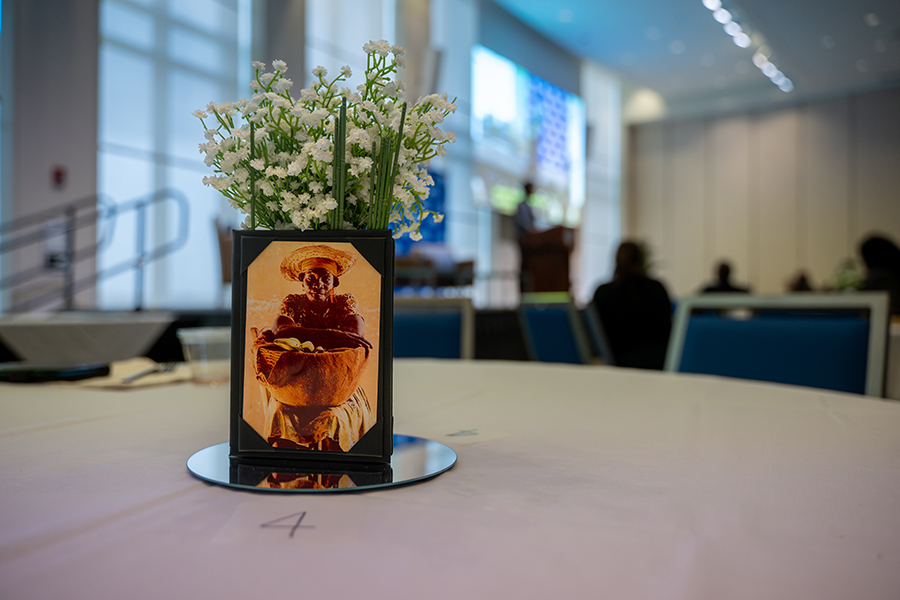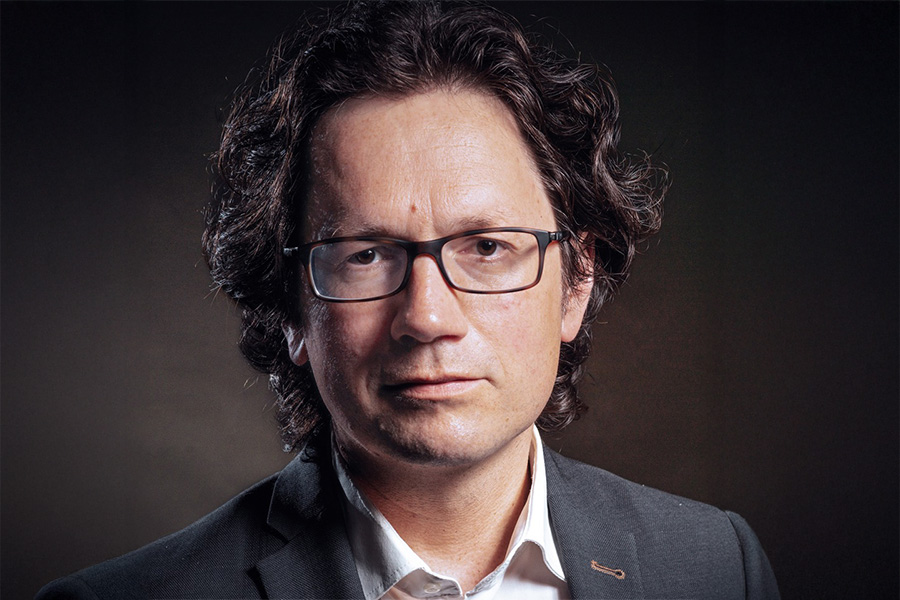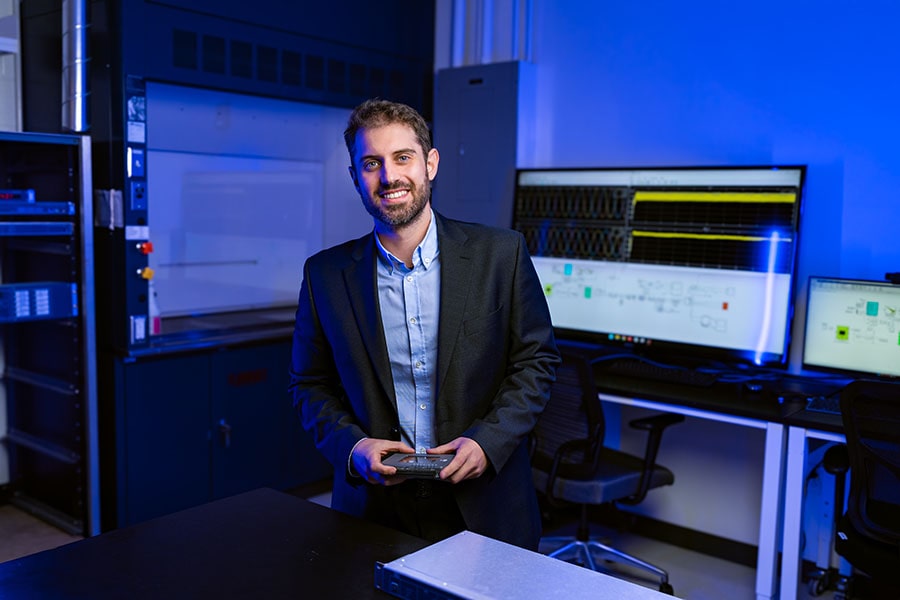Sustainable Solutions Lab Awarded $100K Grant by National Science Foundation to Advance Research on Climate Inequality
The signs of climate change are everywhere. This summer was marked by devastating wildfires in Hawai'i and Canada, a hurricane in northwest Mexico and southern California, record rainfall in New England, and a deadly heat wave in the southwest. These climate-related events will only become more common in the coming years, impacting everyone in some way. But the impacts of climate change will not be felt by everyone equally.
Social, economic, and political inequality have undermined the climate resilience of under-resourced communities. At the same time, climate change will magnify existing inequalities. The vicious cycle between climate change and inequality has multiple causes and consequences that call for rigorous interdisciplinary research.
To address these urgent issues, the Sustainable Solutions Lab (SSL) was awarded a $100,000 center planning grant by the National Science Foundation's Centers for Research and Innovation in Science, Environment and Society (CRISES) program. The CRISES program was established to build capacity to "address complex and compounding national and global crises'' using human-centered approaches. The planning grant will favorably position SSL to apply for CRISES center funds, and is a significant step towards establishing the Climate Inequality and Integrative Resilience (CLIIR) Center at UMass Boston. The CLIIR Center is the next phase in SSL's trajectory and will aim to advance scientific knowledge on the links between inequality and climate resilience to inform climate resilience policy and practice.
“We are grateful and excited to receive this grant from NSF," says Dr. Rosalyn Negrón, principal investigator for the planning grant. “This will allow us to really expand SSL’s work while digging into some of the institutional priorities at UMB right now. These are imperative concerns for research and we know we can lead on issues of climate change and inequality at UMB.”
Under the planning grant, SSL will bring together researchers, community members, students, and practitioners to envision and build the CLIIR Center. Led by Dr. Negrón, SSL's research director and associate professor of Anthropology, an interdisciplinary team of scholars will engage in a series of activities designed to expand external partnerships and build capacity for collaborative and transdisciplinary research at UMB.
The planning process will be organized around three main themes, selected to highlight areas of strength at UMB and of particular concern to issues of climate inequality and resilience. The themes - Indigenous Knowledge and Governance, Climate Migration, and Climate Change and Health - will draw on the expertise of Drs. Antonio Raciti (co-PI), Elora Chowdhury, Rosalyn Negrón (PI), Alex More, and Cedric Woods (co-PI).
“The Sustainable Solutions Lab has played a valuable role at UMB and in my own scholarship by promoting climate justice integration and transdisciplinary collaboration. As a long-time affiliate of SSL, I look forward to helping shape the next phase of SSL’s work and growing our collective impact in the region,” says co-principal investigator Dr. Raciti.
As part of the CLIIR Center planning process, another group of scholars will begin to establish the new center as a climate resilience decision support hub for community groups, policy makers, planners, and engineers working in climate resilience. The team will develop innovative approaches for decision modeling, decision support systems design, and community-engaged decision science, drawing on the expertise of Drs. Pratyush Bharati, Michael Johnson (co-PI), Paul Kirshen (co-PI), Georgia Mavrommati, and Amit Patel. They will be joined by Dr. Tayo Fabusuyi, assistant research scientist at the University of Michigan’s Transportation Research Institute.
The planning grant will take effect starting September 2023. For more information, contact Dr. Rosalyn Negrón at ssl@umb.edu.
Latest University News
- At the Boston Globe Summit, UMass Boston Faculty, Staff and Students Tell Stories of Making an ImpactLuminaries from art, science, business and politics gathered to give lectures and discussions on this year’s most important issues. UMass Boston was a proud sponsor of this year’s Boston Globe Summit.
- UMass Boston’s College of Management Celebrates 50 YearsThe UMass Boston College of Management marked a defining milestone as faculty, staff, students, alumni, and university leaders gathered to celebrate the college’s 50th anniversary - five decades of expanding access to high-quality business education.
- UMass Boston’s Sixth Annual Black Lives Matter Day Honors Black Cultural Resilience in Challenging TimesAt a moment when Black culture is being legislated against, sanitized, and distorted in public memory, UMass Boston gathered on November 3 for something far more potent than a university event. The sixth annual Black Lives Matter Day was a reminder that Black culture is not a side note in American life, but a backbone and creative engine that has carried generations through both devastation and possibility.
- UMass Boston Marketing Professor Named One of the World’s Most Influential ResearchersProfessor Werner Kunz of the College of Management has been named a Highly Cited Researcher 2025 by Clarivate, recognizing him as one of the world’s most influential researchers.
- Student-Athlete Nathan Rubin Debuts Children’s Book "Chasing a Dream"UMass Boston basketball player and economics major Nathan Rubin has published a children’s book to inspire kids to dream big and work toward achieving their goals.
- UMass Boston Researcher Receives Grant to Study Cyberattacks on Power GridsIoannis Zografopoulos, an assistant professor in the Engineering Department of the College of Science and Mathematics at UMass Boston, has been awarded a grant from the National Science Foundation (NSF) to study the cybersecurity of power grids targeted by communications-based cyberattacks.












